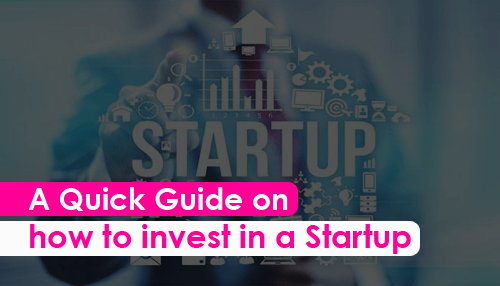There are so many stories of people making it big in the stock market. Some of the best companies in the world can make you rich with just a few clicks of a button. However, you should choose the company you wish to invest in, very carefully. Investing in start-up companies is always a tricky decision. If you are an average citizen who depends on his/her monthly income, the idea of investing in startups can be daunting. But, you might have to bear this risk to see great returns.
Pre-Requisites of Investing in Startups
When you want to invest in a start-up, you must engage in a thorough background study. Also, you should be aware of why start-up companies fail and leave its investors without anything. As mentioned previously, investing in start-ups is always a high-reward, high-risk situation.
Some startup companies will give your money back if nothing goes well. If the company guarantees full money back, don’t think twice to invest in it. Regulations are often relaxed to allow investors to make the most of their shares. However, if you wish to play safe, you must be aware of the local rules and regulations in investing in a startup.
Investing in startup companies versus public market
Some people consider investing in the public market over startups. If you are bothered by this confusion, here are few pointers to help you:
- People who invest in the public market will see a return within a few weeks or months. On the other hand, major liquidity events would occur in startups within 10 to 15 days. Of course, you can expect small-sized liquidity events to happen at any random hour. If this happens, you are bound to see some money.
- When you invest in the public market, you will have the freedom to sell your stocks at any hour. However, selling the stocks of a startup is not easy. The startup has the right to control when and how much you can sell. This is why potential investors are expected to read the regulations of the startup before making a move.
- “Returns” is what differentiates the public market from a startup. If a startup is extremely successful, you will reap great rewards. However, the success rate will always be a secret in the beginning. You should wait for a good amount of time to see if the venture is truly big success. On the other hand, public markets will always fetch you a good deal of money. But, the figures will be relatively smaller.



